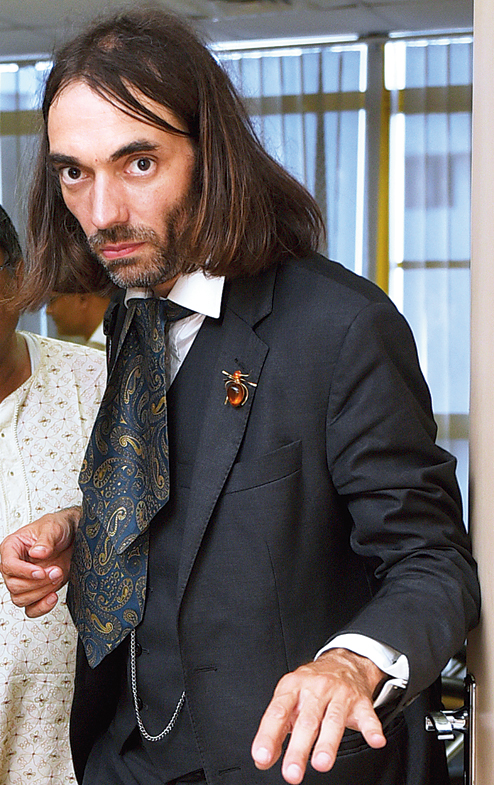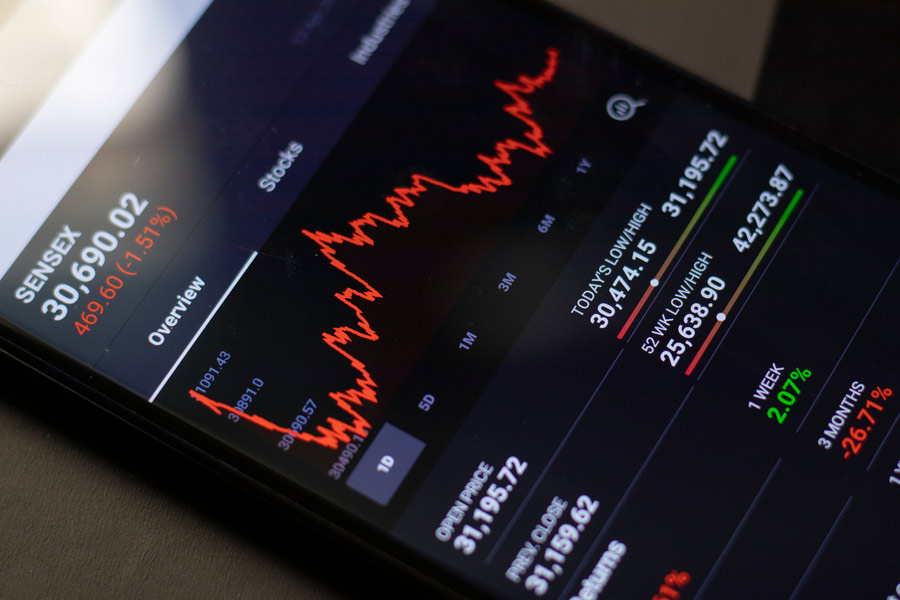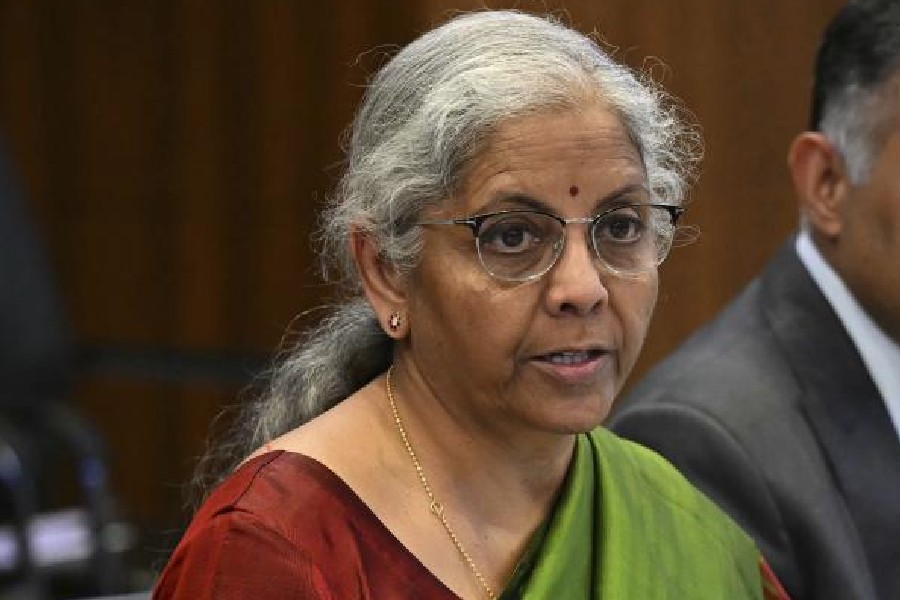
CEDRIC VILLANI has argued that mathematics can be sexy, citing what he calls its beauty, its usefulness, and its capacity to generate wealth. The 42-year-old winks when some describe him as the Lady Gaga of Mathematics, and he fiercely guards a secret about his fascination for spiders.
Villani, a French mathematician and winner of the Fields Medal, an award considered equivalent to the Nobel Prize, arrived in Calcutta on Friday to lecture at academic institutions, and if possible squeeze in trips to the former French colonial town of Chandernagore, the Ganga, and a sari shop.
Since receiving the Fields at the International Mathematical Union conference in Hyderabad in 2010, Villani has been engaged in outreach efforts to convey to scholars and the public across the world what he says are the challenges and the frustrations, the pleasures and the rewards, as well as the myriad applications that come through the pursuit of mathematics. After spending time in Mumbai and Bangalore, Villani is here to deliver a series of lectures at the Indian Statistical Institute, the Indian Institute of Science Education and Research, and Presidency University.
In an interview to G.S. Mudur and Sudeshna Banerjee, Villani touched on, among other topics, the importance of scientific outreach, the applications of mathematics, his family, his unhappiness about the state of world affairs
— and, of course, his spider brooches.
How does it feel to be back in India? You attended a science camp for senior school and college students in Bangalore and are delivering lectures here. Is this part of your outreach efforts?
The return is quite emotional. As soon as I got out of the plane, I recognised the atmosphere and it brought back many memories. Six years is not so long, but not so short. I realised how much work I had done, a lot of outreach work, hundreds of lectures and events like the ones planned here.
Why do you think it is important for mathematicians, or scientists in general, to engage in activities to reach out to the public?
This is important for several reasons. It is more important now than before. One reason is we need more than ever now to motivate young people... 21st century science has turned into a big machine, with political importance, economic importance, international competition. At the same time, it is becoming more and more difficult to find enough young people to study science. They often prefer to pursue more secure careers.
Second reason, it is important to talk to people about what we are doing, so that politicians and industry are reminded regularly about what we are doing. Last month, the French government announced a budget cut in science for the next year. I and seven other scientists went public, wrote it was a shame, this was published on the front page of Le Monde. The cut was cancelled. The cut was reversed. We should not have to do this. We need to remind politicians about how important science is. It is true everywhere around the world.
Last reason, it is important that the scientists feel they are part of society, and society feels science is part of it. Even if people don't understand the mathematics, they should know what is going on.
In your earlier talks, you have highlighted the usefulness of mathematics for tasks such as searching the Internet. Could you illustrate other routine or emerging applications?
Currently, a large majority of applications are based on algorithms, because almost by definition computer science is a way to apply mathematical theories and realise them. But it is not the only thing. Statistics nowadays is very important in all fields of science. People doing psychology experiments, studying differences in behaviour use statistics. Statisticians are, among mathematicians, most sought after, because of developments in big data analysis. Other applications are in transport, Internet search, power transmission, telecommunications.
There is, of course, the game industry. Special effects in movies are very strongly mathematical. An example which I like to talk about is the movie Gravity, for which they spent over five years developing the algorithms, the recipes to make the images. We also see significant applications of mathematics in biological sciences. I also expect medicine to change with important input from mathematics.
How important is collaboration in basic mathematics research?
The majority of mathematical research nowadays is through collaboration and the exchange of ideas. In the old days, they would write letters. The majority of published research papers now involve joint work between two or three authors from different institutions. In my example, maybe two-thirds of my papers, or perhaps 80 per cent, were written with collaborators from Germany, Italy, Canada, and America. But there are moments, when you feel lonely - in those moments when we are face-to-face with the problem.
You mentioned young people are turning to more secure alternatives - which ones?
Business management careers, or something like high level civil servants, or financial markets, these kinds of things. I know a number of my schoolmates who are very bright and would have become great scientists, but preferred to go into banking. One of them is now retiring. He is my age, but is retiring.
Did you know from an early age that you'd do mathematics? You've described your interests in chess and piano, at what point did you turn to mathematics?
I was good at mathematics, but I never really chose a career before age 20 or something like that. I always followed a natural road, I was good in science, so I joined science, I was good in mathematics, and enjoyed doing that. I was fond of chess, but it was consuming too much time. I played the piano up to age 26 but I was becoming a father, a professor, travelling, and did not have enough time. I prefer to put aside, rather than do a bit. It is my style. Either everything or nothing. (Frederic) Chopin... is a god. In the old days, I kind of admired (Franz) Liszt more, but Chopin is somehow deeper.

So how do you plan to spend the next three days in Calcutta?
I'll be giving three special (technical) lectures here, then a lecture at the Presidency University. I plan to go to the Ganga, and I have plans to buy saris, to take back home for my wife and daughter. This is on my list. Maybe we will go to Chandernagore. I want to see the old foreign French settlement in India.
Amid your mathematics and your outreach activities, do you get enough time for home?
My son is 15, my daughter is two years younger. Even though I have not been at home as much as I should have, I have taken care of them, feeding the kids, watching movies with them, and - what was very important to me - telling them stories, long stories. Two weeks ago, we went on a family hike with bicycles, 600km on bikes across France, together for about 10 days, sleeping in tents. I am glad I have some time to do this from time to time.
Your fascination for spider brooches has prompted some to call you the "spiderman with a web of theorems". When and how did this fascination emerge - and how many spider brooches do you have?
About 30, but I decided at some point that I would actually keep the original episode secret. It is more than 12 years. When I got the Fields Medal in 2010, I had spiders only from a local shop in Lyon. However, since then, they've become famous. Nowadays, people and colleagues offer me spiders regularly. When I travel, I carry some with me, so I can change them day-to-day. I now have spiders from Niger, Uruguay, Morocco, France, and eastern Europe.
You have been described as Lady Gaga of Mathematics - how did that happen?
It started from an intelligent question. I was asked, why is it you are so famous, among other mathematicians in France. I said that I think people notice me because of the way I dress. Then I used an analogy - I said, look at Lady Gaga, she is famous because of her style. The journalist called me the Lady Gaga of Mathematics. Some of my colleagues, especially some of my older colleagues, were not happy about this. They thought I was kind of ridiculing my job. But the younger ones thought it was fine. It is not a big deal. On the contrary, it shows that you don't take yourself too seriously. The worst that you can do as a mathematician is to say you are higher than everybody, that you cannot be compared to simple people. That is bad.
This is far removed from mathematics, but you once supported a mayor in Paris, so we'd like to ask you - how do you view the state of the world today? Do you see any role for the scientific community in influencing such affairs?
I think world politics is in a bad state. What we are seeing in America is maybe laughable. It is really sad. America is a great country, but its politics is in a terrible state. But it is everywhere. We see nationalism is rising, populism is rising. People are not trying to think. Tensions are accumulating. I am very concerned about this. I am a federalist, and I am engaged in some movements, believing that Europe has to be better organised to become what would one day be the United States of Europe. Currently, it is rather the reverse. The problems of the world are global. It is not easy for scientists to be involved in politics, but hopefully, scientists can remind people that it is good to approach problems rationally. Science is also a great example of collaborative activity worldwide.

What would you like to ask Cedric Villani? Tell ttmetro@abpmail.com










